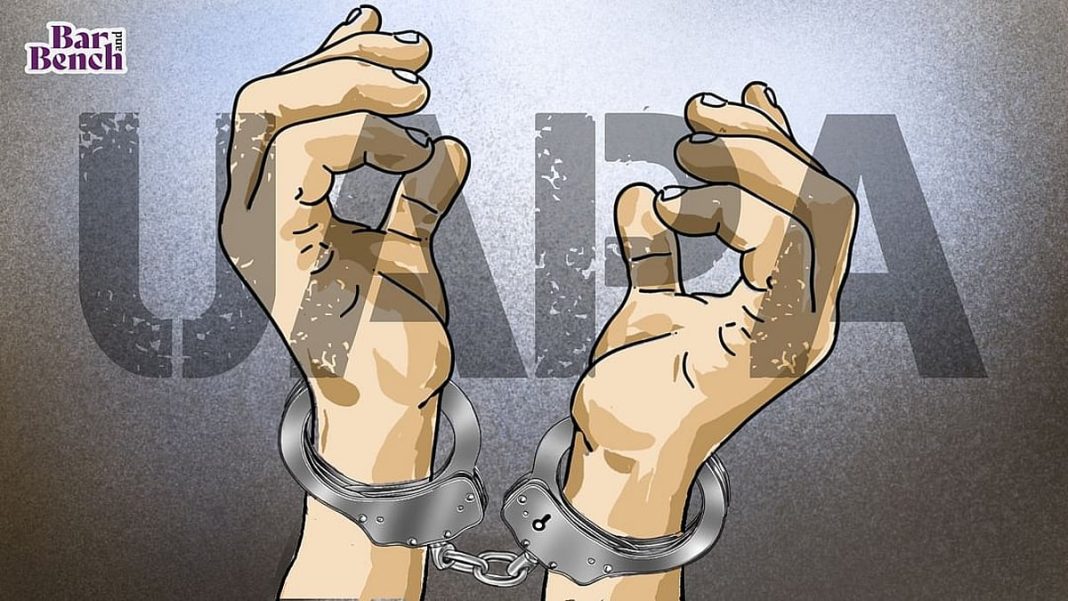The Supreme Court of India recently upheld the denial of bail to an accused in a Unlawful Activities (Prevention) Act (UAPA) case, a decision that has once again brought into sharp focus the stringent provisions of India’s anti-terror law. The case, heard against the backdrop of heightened security concerns following recent incidents including the Delhi blast, centred significantly on an alleged incriminating message: “Best morning to send a message.” This seemingly innocuous phrase, interpreted by investigative agencies as indicative of a conspiracy, became a crucial piece of evidence influencing the apex court’s decision.
The UAPA, the Delhi Blast, and an Incriminating Message
The Unlawful Activities (Prevention) Act, 1967, is India’s primary anti-terror legislation, known for its rigorous provisions, particularly concerning bail. Unlike ordinary criminal law where bail is often the norm, UAPA cases place a heavy burden on the accused to prove their innocence at the bail stage itself, making it exceedingly difficult to secure release before trial. The present case involves an individual accused under various sections of the UAPA, including those related to terrorist acts and conspiracy.
The timing of the Supreme Court’s hearing is crucial. Occurring in the aftermath of the recent Delhi blast, which saw an IED explosion near the Israeli Embassy, the judiciary’s approach to national security cases is under intense scrutiny. Such incidents naturally amplify concerns about internal security and the need for robust action against potential threats. In this atmosphere, the message “Best morning to send a message” took on profound significance. Investigators contended that this phrase, allegedly exchanged between conspirators, referred to the timing of an impending unlawful act, designed to send a clear, intimidating message through violence.
The prosecution argued that this communication, along with other circumstantial evidence, formed a strong prima facie case against the accused. The context provided by the investigative agencies painted a picture of premeditation and malicious intent, transforming an ordinary phrase into a crucial link in an alleged terrorist plot. The implications for the accused are severe, as continued incarceration under UAPA can last for years before a trial concludes.
Supreme Court’s Rationale: The Prima Facie Bar
The Supreme Court’s decision to deny bail was firmly rooted in its interpretation of Section 43D(5) of the UAPA. This particular provision mandates that if, upon perusing the case diary or the report made under Section 173 of the Code of Criminal Procedure, the court is of the opinion that there are reasonable grounds for believing that the accusation against such person is prima facie true, bail shall not be granted. This sets a much higher threshold for bail compared to other criminal statutes, where the prosecution usually needs to demonstrate reasonable suspicion, not a prima facie case.
In this instance, the Supreme Court meticulously reviewed the material presented by the National Investigation Agency (NIA). The Bench, after considering the evidence, including the controversial message, concluded that the prosecution had indeed established a prima facie case against the accused. The court observed that the collected evidence, when viewed collectively, indicated the accused’s involvement in a conspiracy to commit terrorist acts. While specific details of all the evidence remain part of the ongoing trial, the alleged communication played a pivotal role in the court’s assessment.
A key observation from the judgment underscored the court’s difficulty in overlooking such evidence at the bail stage: “While considering a bail application under the UAPA, the court cannot undertake a meticulous examination of the evidence. However, if the material on record reasonably indicates the involvement of the accused, the bar under Section 43D(5) is attracted.” This statement reinforces the limited scope of judicial review at the bail stage in UAPA cases, where the mere existence of reasonable grounds for belief in the accusation is sufficient to deny liberty.
Implications for UAPA Jurisprudence and Individual Liberty
The Supreme Court’s decision carries significant implications for UAPA jurisprudence in India. It reaffirms the stringent nature of the law and the judiciary’s cautious approach when dealing with cases concerning national security and alleged terrorist activities. For advocates of civil liberties, the UAPA has long been a subject of contention, with criticisms ranging from its broad definitions of “terrorist acts” to the difficulty in obtaining bail, often leading to prolonged pre-trial detention.
This ruling reinforces the state’s power to use the UAPA to combat perceived threats, particularly in a climate where national security concerns are paramount. While the balance between national security and individual liberty remains a complex and ongoing debate, the court’s stance in this case leans towards prioritizing the former at the bail stage. It also signals to investigating agencies that thorough evidence gathering, even circumstantial, can effectively meet the stringent prima facie test required under the UAPA.
As the trial proceeds, all eyes will be on how the prosecution further substantiates its claims and how the defence challenges the interpretations of evidence, including that critical message. The denial of bail does not equate to conviction, but it certainly prolongs the legal battle for the accused, highlighting the formidable challenges faced by those charged under India’s rigorous anti-terror law.
The outcome of the full trial will undoubtedly add another chapter to India’s evolving legal landscape concerning national security, individual rights, and the formidable UAPA.




